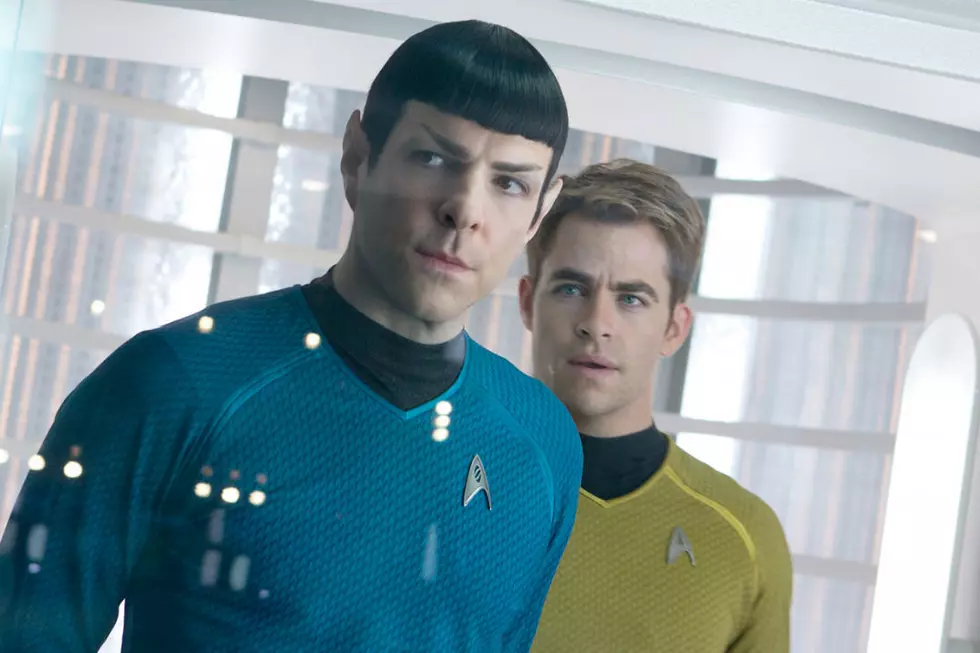
Uma Thurman Reveals Harvey Weinstein Assault, Harrowing Truth Behind ‘Kill Bill’ Car Crash
As promised in a scathing Instagram post last Thanksgiving, Uma Thurman is speaking out about Harvey Weinstein. In a new op-ed by Maureen Dowd for The New York Times, Thurman details her own devastating experiences with Weinstein, which include an alleged sexual assault; in a first, Weinstein mostly confirms her recollection and has apologized. But it doesn’t end with the disgraced executive: Thurman also calls out former collaborator Quentin Tarantino, who did little to intervene after learning of the assault, and, as evidenced by harrowing video footage, went on to endanger Thurman’s life on the set of Kill Bill.
Thurman recalls a few specific encounters with Weinstein that echo the accounts shared by myriad actresses in the months since a pair of damning exposés first brought his history of alleged sexual abuse and rape to light. In the first, Weinstein attempted to lure her into a steam room at his hotel in Pairs. Though Thurman managed to leave the hotel unscathed that time, another meeting with Weinstein at the Savoy Hotel in London ended with what she calls the first “attack”:
It was such a bat to the head. He pushed me down. He tried to shove himself on me. He tried to expose himself. He did all kinds of unpleasant things. But he didn’t actually put his back into it and force me. You’re like an animal wriggling away, like a lizard. I was doing anything I could to get the train back on the track. My track. Not his track.
Thurman was staying with makeup artist Ilona Herman at the time, who corroborated her story. The day after the attack, Weinstein sent a bouquet of roses to Herman’s house, and after speaking with his assistants, she decided to meet with the executive one more time at the Savoy. Like many other actresses who have bravely come forward with allegations against Weinstein, Thurman says his well-trained assistants manipulated her into going up to his private room. There, she told Weinstein, “If you do what you did to me to other people you will lose your career, your reputation and your family, I promise you.” Thurman does not remember what happened next, but Herman said that when she returned to the hotel lobby, Thurman was “very disheveled and so upset and had this blank look.” She later told Herman that Weinstein threatened to ruin her career.
In a first, Weinstein, via a representative, has largely confirmed Thurman’s recollection, though he denies ever threatening her. The actress says his “therapy must be working” — referring to Weinstein’s ongoing stay at a rehabilitation facility in Arizona.
Unfortunately, her trauma continued on the set of Kill Bill. Thurman says she told director and longtime friend Quentin Tarantino that Weinstein assaulted her, but despite confronting the executive, his working relationship with the Weinsteins continued. Thurman says she has a “complicated feeling” about her own experiences because of “how bad I feel about all the women that were attacked after I was.” That she appeared in Kill Bill, which was produced by Weinstein and, she says, “symbolizes female empowerment,” has only made things more painful.
Her pain was exacerbated by an incident on the Mexico set of Kill Bill, where, she says, she was asked to drive an unsafe vehicle. Thurman was filming the scene in which Beatrix Kiddo, aka The Bride, is en route to finally confront the eponymous Bill. She’s driving a blue convertible. She had been warned by a teamster that the car, a manual that had been converted to an automatic, was unsafe, but Tarantino demanded that she drive it herself. When she asked for a stunt person to stand-in, Tarantino refused. (He did not respond to the Times’ requests to comment.)
He was furious because I’d cost them a lot of time. But I was scared. He said: ‘I promise you the car is fine. It’s a straight piece of road.’” He persuaded her to do it, and instructed: “ ‘Hit 40 miles per hour or your hair won’t blow the right way and I’ll make you do it again.’ But that was a deathbox that I was in. The seat wasn’t screwed down properly. It was a sand road and it was not a straight road.
It took 15 years for Thurman to obtain footage of the crash, which she handed over to the New York Times. In the video, you can see Thurman almost immediately lose control of the vehicle before slamming into a tree. A few moments later, a crew member comes to assist, followed by Tarantino himself. Thurman goes on to detail the incident and its aftermath, which have left her with a “permanently damaged neck” and “screwed-up knees”:
The steering wheel was at my belly and my legs were jammed under me. I felt this searing pain and thought, ‘Oh my God, I’m never going to walk again,’” she says. “When I came back from the hospital in a neck brace with my knees damaged and a large massive egg on my head and a concussion, I wanted to see the car and I was very upset. Quentin and I had an enormous fight, and I accused him of trying to kill me. And he was very angry at that, I guess understandably, because he didn’t feel he had tried to kill me.
While filming, she says, Tarantino was happy to assist in certain scenes in which her character, Beatrix, was assaulted. It was Tarantino who spit on Thurman in the scene where Michael Madsen spits on her, and it was Tarantino again who choked her out with a chain in the scene where she’s being choked by teen assassin Gogo.
Thurman’s relationship with Tarantino was understandably fractured, culminating in a 2004 fight in which the actress demanded to see footage of the crash; Tarantino refused, saying it was “what they had all decided.” She threatened to sue Miramax, which offered to let her view the footage if she signed a document “releasing them of any consequences of my future pain and suffering.”
Tarantino eventually handed the footage over to Thurman, but the damage had been done. Perhaps adding insult to injury, it seems that the filmmaker incorporated Thurman’s car crash into Death Proof; even more disturbing, the film stars a blond-haired Rose McGowan. Thurman says her experiences with Tarantino were worse than those with Weinstein:
Harvey assaulted me but that didn’t kill me. What really got me about the crash was that it was a cheap shot. I had been through so many rings of fire by that point. I had really always felt a connection to the greater good in my work with Quentin and most of what I allowed to happen to me and what I participated in was kind of like a horrible mud wrestle with a very angry brother. But at least I had some say, you know?
Tarantino has previously admitted that he “knew enough to do more” about the allegations against Harvey Weinstein, who produced every one of his films. We’ll update if and when Tarantino responds to Thurman’s story.
More From Mix 104.3










